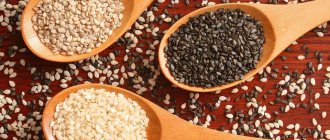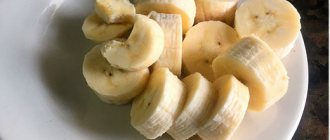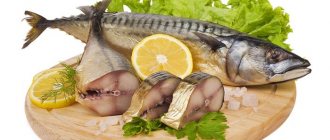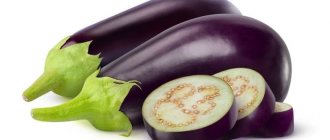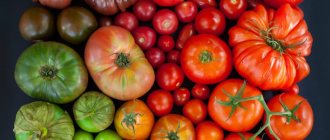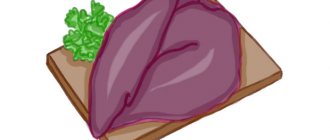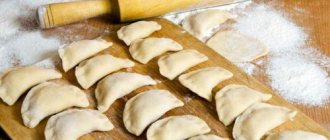After birth, the baby finds himself in a new environment, which takes several months to get used to. An important factor determining the baby’s well-being is the mother’s nutrition. After all, the foods she eats affect the quality of breast milk.
Even in the maternity hospital, they explain to the young mother how she needs to eat so that the newborn feels good. But among all the products, prunes are often forgotten. It contains many useful substances. It helps digestion. This dried fruit can be eaten even on a strict diet to replace sweets.
The newborn’s body is not yet prepared to consume all foods. Therefore, you need to be careful when introducing something new into a nursing mother’s diet. According to many pediatricians, a woman’s unreasonable consumption of prunes is harmful to the baby’s health.
Is it possible to eat prunes during breastfeeding in a newborn?
A nursing woman's diet should be balanced, as it determines the composition of breast milk. Dried fruits contain essential vitamins and microelements, but they must be administered carefully. Otherwise, the child experiences diarrhea, bloating, and colic. It is also important to consider whether dried fruit compote is possible during breastfeeding.
In the first days after birth
Immediately after birth, the baby's digestive system is sterile. In order not to harm the baby, a nursing mother needs to carefully monitor her diet. The consumption of prunes, which can cause diarrhea, increased gas formation or colic, is strictly prohibited during this period.
In the first month
3-4 weeks after the birth of the baby, the mother can gradually introduce prunes into the menu. It is recommended to do this if she or her child experiences constipation. In this case, prunes will help establish regular bowel movements. It is recommended to drink a decoction of several fruits rather than eat dried fruits.
In the second month
If after drinking the decoction the baby has no negative reactions, prunes themselves are introduced into the diet. Start with 1 piece per day and carefully monitor the baby’s condition. In the second month, it is not recommended to increase the recommended portion.
In the third month
Starting from this time, you can gradually increase the daily portion of prunes to 4-5 pieces. It is no longer recommended to use it so as not to cause bloating, abdominal pain and bowel upset in the child.
How to cook prunes for a nursing mother?
Nursing mothers can eat prunes not only raw. It is used to make compote and add it to baked goods, desserts, meat and other dishes. It is important not to exceed the maximum dosage. Then such dishes will bring even more benefits.
How to cook compote from prunes and apples, which you can drink in the first month of breastfeeding?
In the first month, you should not cook compote exclusively from prunes. The most suitable recipe would be apples and prunes. Apples are also allowed from the maternity hospital. This combination is tasty and healthy.
Compote of prunes and apples for a nursing mother.
Compound:
- Apples - 1 large.
- Prunes - 100 g.
- Sugar - up to 100 g (to taste).
- Water - 1 l.
Preparation:
- Soak prunes in warm water for 10 minutes.
- Boil water and add washed prunes. It is better to first cut the fruits into 2 parts. This will enhance the beneficial properties of the compote.
- Add sugar.
- Wash and cut the apples.
- Add apples to compote and cook for 5 minutes.
- Let stand covered for 1-2 hours.
- The compote can be passed through a fine sieve and the fruit discarded. Or you can drink compote directly with fruit. It's a matter of taste.
Prune and raisin compote recipe
If your baby has grown a little and you want to diversify the diet, you can try compote of prunes and raisins.
Compote of prunes and raisins while breastfeeding can be drunk 2 months after birth.
Compound:
- Prunes - 400 g.
- Raisins - 100 g.
- Sugar - to taste.
- Water - 2 liters.
Preparation:
- Soak dried fruits in water for 10-15 minutes and rinse.
- Boil water and add prunes.
- Cook for 10 minutes and add sugar. Prunes and raisins are sweet on their own. Therefore, you may not need sugar.
- Add raisins to the compote and cook for another 5–10 minutes.
- Cover with a lid and let stand for several hours.
- Dried fruits from compote can be thrown away or eaten.
Read about the use of raisins in the article “Can I have raisins while breastfeeding?”
Activia yoghurt with prunes
Activia yogurt has a great taste. The manufacturer says that it is saturated with bifidobacteria. If you look at the composition on the packaging, you can see the presence of flavorings, thickeners and other harmful components. This yogurt should not be eaten while breastfeeding, especially in the first months.
Kefir with prunes
Kefir and prunes go well together in taste. The products have many beneficial properties. Their combined use promotes weight loss. To do this, mix prunes with kefir and beat with a blender. To get rid of excess weight, drink a glass of this drink every night before bed.
Prune puree
This dish has a lot of useful properties. Thanks to this, it can be eaten in small quantities from the hospital. This dish is included in the list of products for the baby's first complementary feeding. You can buy ready-made jars of baby puree in the store or prepare it at home.
Compound:
- Prunes.
- Water.
- Sugar.
Preparation:
- Fill the prunes with water and rinse.
- Cook the dried fruits for about 20 minutes over low heat.
- Beat with a blender. You can first remove the skin from the prunes if the puree is for a baby.
- You can add sugar.
You can make prune puree with apples. To do this, boil them with prunes for 10 minutes.
Salad “Beets with prunes”
This salad with walnuts can be eaten by nursing mothers from 4-5 months, if all the components are already included in the diet. You can try without nuts when your baby turns 2 months old.
Beetroot salad with prunes for a nursing mother. This time I made it without nuts.
Compound:
- Beets - 4 pieces.
- Prunes - 150 g.
- Nuts (walnuts) - a handful.
- Sour cream - 5 tbsp. l.
Preparation:
- Boil the beets.
- Pour warm water over the prunes.
- Roast the nuts. Read more about this product in the article “Nuts during breastfeeding.”
- Grate the beets.
- Grind dried fruits and nuts.
- Mix the ingredients and season with sour cream.
Cottage cheese with prunes
If you are looking for something sweet to eat while breastfeeding, pay attention to cottage cheese with prunes. Such products are allowed for nursing mothers, and the dessert is very easy to prepare. To do this, mix cottage cheese, sugar or condensed milk, sour cream to taste and beat with a blender. Add chopped prunes. Dairy products are allowed for nursing mothers one month after giving birth.
Decoction
Prune decoction is the most concentrated form of the drink. It is useful for normalizing the gastrointestinal tract, improving digestion and treating constipation. It should be brewed in the same way as dried fruit compote, but the concentration of prunes in this drink is several times higher, so it needs to be drunk in smaller quantities. It is not recommended to drink the decoction more than once a day.
Infusion
The infusion is also a concentrated form of the drink, so it is important to pay attention to the dosage. Excessive consumption of prunes during breastfeeding can provoke negative reactions from the infant. Remember that even the safest product can cause allergies and colic if eaten in large quantities.
Compound:
- Sugar - 100 g.
- Water - 1 l.
- Prunes - 400 g.
Preparation:
- Rinse prunes in warm water.
- Pour boiling water over it.
- Cover with a lid and wrap.
- Let it sit for a day.
How many prunes can you eat per day and from what month?
If the newborn does not suffer from constipation or has loose stools, the mother is not recommended to eat prunes until he is 4 months old.
This dried fruit contains a lot of glucose and has a strong laxative effect. Unwise consumption of prunes can cause a deterioration in the baby’s condition.
Starting from 4 months, the mother can take 1 piece per day, if the baby does not have a tendency to allergies. In this case, it is necessary to carefully monitor the child’s reaction. If loose stools, skin rashes, increased gas formation appear, prunes are excluded until the condition normalizes.
Is there any harm from prunes?
Despite the abundance of vitamins and nutrients, consumption of prunes by nursing mothers can be harmful in some cases.
Negative aspects of using prunes during breastfeeding:
- May cause allergies. The appearance of redness and peeling on a child's skin is a sign of an allergic reaction;
- The baby may experience colic, as well as gas formation, if the mother consumed this dried fruit before feeding;
- If you have diarrhea, you should not eat prunes, so as not to aggravate the situation;
- Often harmful substances are used in production that can harm both mother and child;
- High calorie content can lead to excess weight.
Is it possible to eat prunes while breastfeeding a newborn, given the negative impact? If you approach this issue wisely, you can avoid unwanted consequences. To do this, you need to familiarize yourself with the rules for consuming this product.
Important! If a reaction occurs on the part of the baby (stomach upset, allergies), you should immediately stop eating prunes.
The benefits and harms of prunes for nursing women
Dried plums do not lose nutrients compared to fresh fruits. Prunes contain vitamins, beneficial microelements, pectin, organic acids, and several types of sugars. There is no minimum salt content.
This healthy dried fruit has a tonic and bactericidal effect. It is recommended to use it if you are prone to heart disease or weak blood vessels. Due to the high potassium content, prunes stimulate the heart muscle and normalize high blood pressure.
For a young mother, dried fruit is useful in combating constipation. With regular use, it will help get rid of excess weight gained during pregnancy, improve the condition of the skin, nails, and hair.
The glucose contained in dried fruits eliminates fatigue and irritation and increases performance. Prunes have a lot of iron. It is recommended to use it for anemia. Thanks to its antioxidant properties, dried fruit strengthens the immune system.
Prunes can only be harmful to a nursing mother if consumed in excess. Due to the high sugar content, a woman gains weight. She develops diarrhea and excessive gas formation. Since the mother’s diet affects the composition of breast milk, all negative reactions also appear in the baby.
What are the benefits of prunes?
Dried fruit contains a huge amount of vitamins, microelements, fiber, pectin, fructose, glucose, organic acids, tannins and nitrogenous substances.
This product is classified as hypoallergenic, but this does not mean that it cannot cause side effects.
Its benefits are:
- preventing the development of anemia;
- improving the structure of the skin, the appearance of hair, teeth;
- strengthening the immune system;
- improving metabolic processes and maintaining water-salt balance in the body;
- normalization of blood pressure;
- providing an antidepressant effect;
- improving the functioning of the cardiovascular and digestive systems;
- reducing cholesterol and blood sugar levels;
- improving memory and attention;
- providing a bactericidal effect;
- increase in energy.
Contents of useful elements
This dried fruit contains: magnesium, potassium, calcium, iron, phosphorus, zinc, organic acids, vitamins A, B, and C, pectin, fiber, fructose, glucose, nicotinic acid P, tannins and nitrogenous substances.
Effect on the digestive system
This dried fruit has the following effects on the gastrointestinal tract:
- enhances peristalsis;
- regulates the functioning of the stomach and pancreas;
- choleretic;
- participates in the digestion process.
Therefore, it should not be used frequently.
How does eating prunes affect lactation?
When consumed correctly, dried plums can stimulate breast milk production. But it is important to take into account that prunes, like plums during breastfeeding, affect its composition. This inevitably affects the baby's condition.
Fresh prunes
In combination with other dried fruits - dried apricots, raisins, dates, figs, prunes increase lactation. They need to be mixed and passed through a meat grinder. Sweet mass should be consumed 1 tbsp. l. per day, washed down with warm, weak tea.
Prunes with milk
Previously, it was considered beneficial for a nursing mother to drink more tea with milk. It has now been proven that its use does not affect lactation in any way. Moreover, many babies are allergic to cow's milk. In combination with prunes, it causes diarrhea in a child, colic, and flatulence. Therefore, it is not recommended to use prunes with milk to stimulate lactation.
Plum compote
A prune-based drink is the best option to diversify the meager diet of a nursing mother. It will be especially useful if you add other dried fruits - dried apricots, apples, raisins. Plum compote will increase lactation and normalize stool for mother and baby, if necessary.
The effect of prunes on a child
Despite the fact that this dried fruit is a weak allergen, a baby may experience an allergic reaction - rash, redness. Therefore, after introducing dried plums into the diet, it is necessary to carefully monitor the baby’s well-being. If any reaction to the product occurs, you should exclude prunes from your mother’s diet for a couple of weeks, and then try again.
As a result of premature or excessive consumption of the product, the baby may develop colic, bloating or indigestion. If such symptoms appear, you should also give up dried fruit for a while.
When drying plums, special chemicals are often added. Therefore, in order to avoid health problems for the child, prunes should be soaked before consumption, preferably overnight.
Some children under one year old have problems with stool associated with immaturity of the alimentary tract. By consuming several dried plums a day, a mother can ease the process of bowel movements for a baby who is constipated.
Effect on the baby
When consumed wisely, prunes have a good effect on the baby's condition. Infants often experience constipation. If a woman eats dried plums, the baby’s stool will normalize.
Starting from 6 months, the baby can be given prunes in the form of a decoction. The product does not cause allergies if consumed in the permitted quantity.
If a nursing mother eats a lot of prunes, the baby may have diarrhea. If you are prone to allergic reactions, a rash occurs. Therefore, it is important not to exceed the permissible limit.
How are prunes useful for mother and baby during breastfeeding?
Prunes are very popular due to their taste and beneficial properties. It is rich in vitamins A, B, C, PP. In addition, it contains a lot of minerals, including calcium, magnesium, zinc, potassium, iron, phosphorus. It is also high in fiber and pectin. Our body needs these substances for good functioning of the gastrointestinal tract. Prunes are a concentrate of useful substances that a fresh product contains - plums.
Prunes are very useful for breastfeeding. It will help relieve constipation for both mother and baby.
Regular consumption replenishes the reserves of vitamins and minerals in a woman’s body, depleted by pregnancy and childbirth. This contributes to the rapid recovery of the new mother. In addition, dried fruit has the following properties:
- normalizes blood pressure;
- puts metabolic processes in order in the body;
- removes toxins;
- slows down the aging process;
- improves the functioning of the gastrointestinal tract;
- normalizes the functioning of the nervous system;
- prevents the development of tumors;
- strengthens the immune system;
- helps in the fight against viruses;
- improves brain function;
- improves the condition of hair and nails;
- helps fight depression;
- increases vitality;
- removes excess fluid from the body;
- helps with constipation;
- removes toxins;
- improves the condition of teeth and bone tissue;
- increases hemoglobin;
- improves the functioning of the cardiovascular system;
- has a beneficial effect on muscle tissue, etc.
Effect on the child, help with constipation
Eating prunes by a nursing mother has a good effect on the health of the baby. Babies often suffer from constipation. If prunes are present in the mother’s diet, this problem can be dealt with. At an older age (from six months), prune decoction can be given to a child. It is important to remember that if your baby has persistent constipation, you need to consult a doctor and find out the cause of the problem. Constantly treating constipation with prunes is strictly prohibited.
Many claim that the product may cause the baby to have diarrhea. This is only possible if the mother eats fruits in unlimited quantities. The product is not allergenic, so the risk of developing allergies in infants is minimal.
How long does it take for prunes to pass into breast milk?
It is impossible to say exactly how long it takes for prunes to pass into breast milk. This depends on many factors: metabolic rate, the product was consumed on its own or with other food, etc. On average, the first portion of food enters breast milk within an hour and can be present in it throughout the day.
Reviews
Olga, 28 years old
At the maternity hospital they recommended a decoction of prunes for constipation. I had a caesarean section and had some difficulties with this issue for some time. I steamed 3 things in a mug and drank. It helped. The baby only had diarrhea once from this medicine.
Katya, 29 years old
I hate prunes. But breastfeeding women are not allowed to do anything. Ate. Well, that's okay. The little one didn’t suffer, it was delicious for me. Hooray.
Slava, 30 years old
I really love prunes in chocolate. During breastfeeding I had to eat regular chocolate without chocolate. Tasty too. The baby had no allergies, and her tummy did not hurt. Tasty and healthy, which makes me happy.
Reviews from mothers who breastfeed
Katerina
My daughter is 2.5 months old. I breastfeed her. I replace sweets with prunes and other dried fruits. I did not notice any deterioration in the child’s condition.
Larisa
Prunes are great for treating constipation. If the baby is not allergic, it will not harm. Of course, you need to eat it in small quantities.
Natasha
Prunes make my stomach terribly swell. My son also has gas. That's why I don't eat it. It’s better to save yourself with Duphalac. Or eat more vegetables.
Does it affect the baby's stool?
In the first year of life, a child’s intestinal microflora is formed, so it is necessary to carefully select products. If some foods make you feel constipated, then this dried fruit relieves constipation. Entering the baby's body through mother's milk, it has a laxative effect. Consuming prune compote for 3 days will relieve intestinal problems. A woman should drink ½ glass of compote per day.
Unless there is an urgent need for this product, it is not recommended to use it until breastfeeding ends, since normalizing the functioning of a child’s intestines in some cases takes a long time. In case of constipation, it is necessary to choose a laxative product rather than use medications.
Intestinal problems also occur in nursing mothers, especially immediately after childbirth. The reason is that the liquid escapes into the milk. When breastfeeding, you can eat dried plums, but in small quantities and not every day. Dried fruit is especially useful for women who have large tears.
How to select and store prunes
In stores you often find dried fruits that have been treated with chemicals or dried in an oven. They usually have a shiny surface, cracks, and an unnatural aroma. It is better to refuse to buy such prunes. It won't do any good.
Good dried fruits are black in color, with a matte surface. If a brownish tint is present, the fruits were scalded with boiling water to kill bacteria. They are not dangerous, but they contain fewer nutrients. Fruits with traces of mold, plaque, or an unpleasant damp smell should not be consumed.
Good prunes have a sweet, slightly sour taste. If there is bitterness, it has gone bad.
Store prunes at room temperature. A glass jar with a lid or a paper bag is suitable. The shelf life of dried fruits is 1 year. But it is better to eat it within a few months.
How to introduce it into the diet
If you follow the recommendations for introducing prunes into a nursing mother's diet, you can avoid side effects and get the maximum benefit from this tasty and healthy dried fruit.
Recommendations for inclusion in the diet:
- Prunes are good for a nursing mother and have a positive effect on the baby, but they should not be introduced earlier than the baby is 3 to 4 months old.
- Like any product, they begin to use it with a very small dose, followed by monitoring the condition of the baby.
- Even if no negative changes in the child’s condition are observed, the measure must be observed: 2 – 3 plums per day.
- When first introduced to the menu, it is recommended to consume prunes exclusively in the form of compotes. In this form, the dried fruit will retain all its beneficial properties. Raw plums will be ready to eat in a few more weeks.
- Prune compote during breastfeeding helps cleanse the mother's intestines. Considering the laxative effect of the product, you can drink only one glass per day.
- Before eating the plum, it is necessary to treat it with hot water to clean the surface of bacteria.
- A nursing mother should not consume different types of dried fruits at the same time. The baby's digestive system must get used to one new product. The combination of several products is a difficult test for a baby’s fragile body.
- During breastfeeding, prunes can be consumed in the form of puree when the child reaches 5 months; for this purpose, they are ground in a blender.
